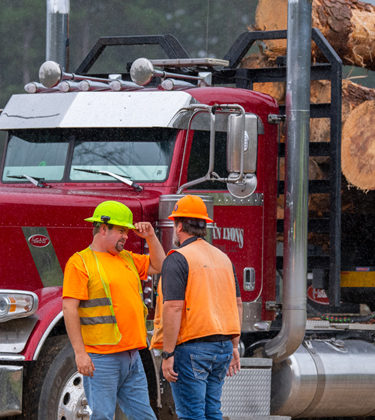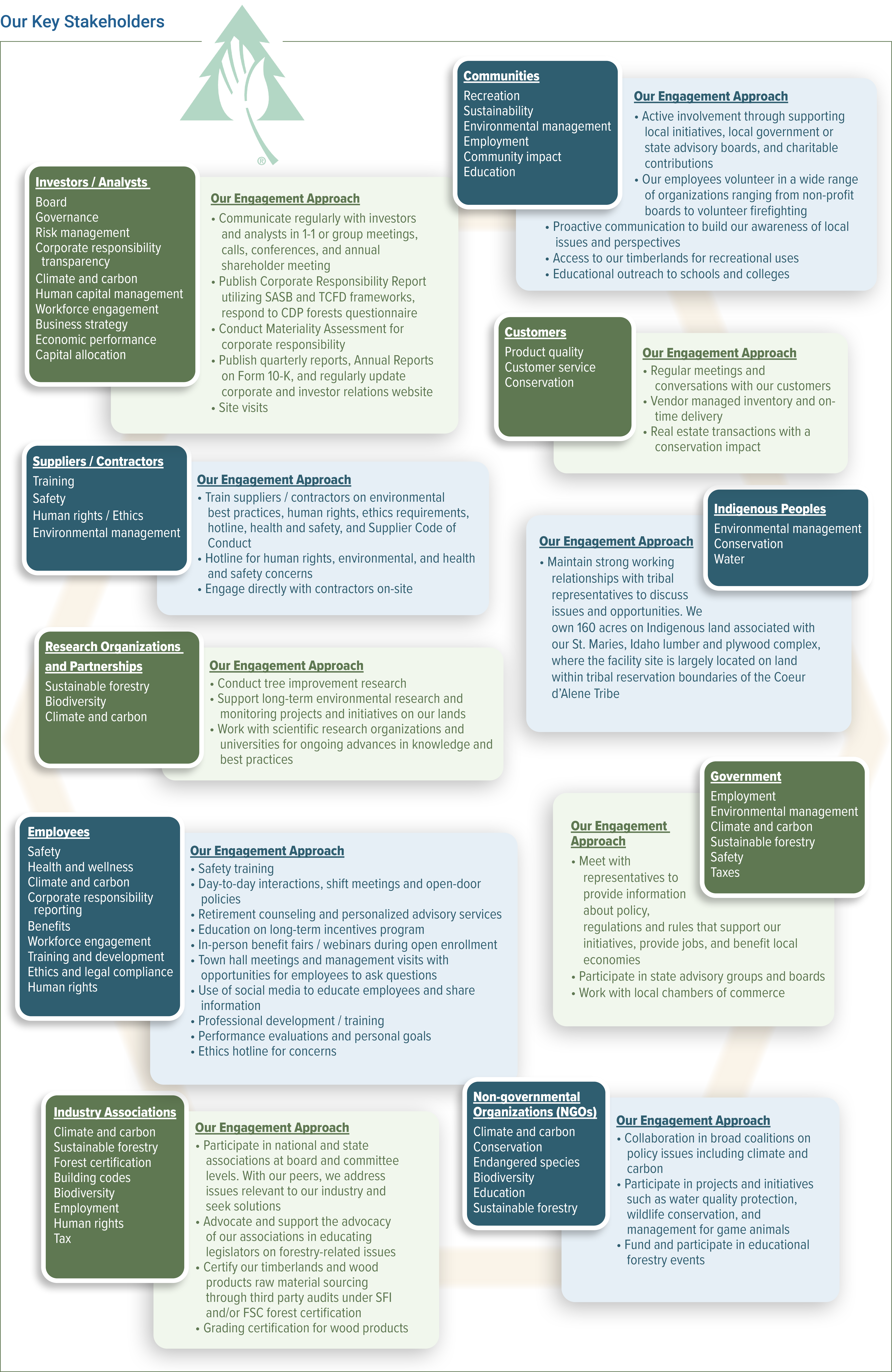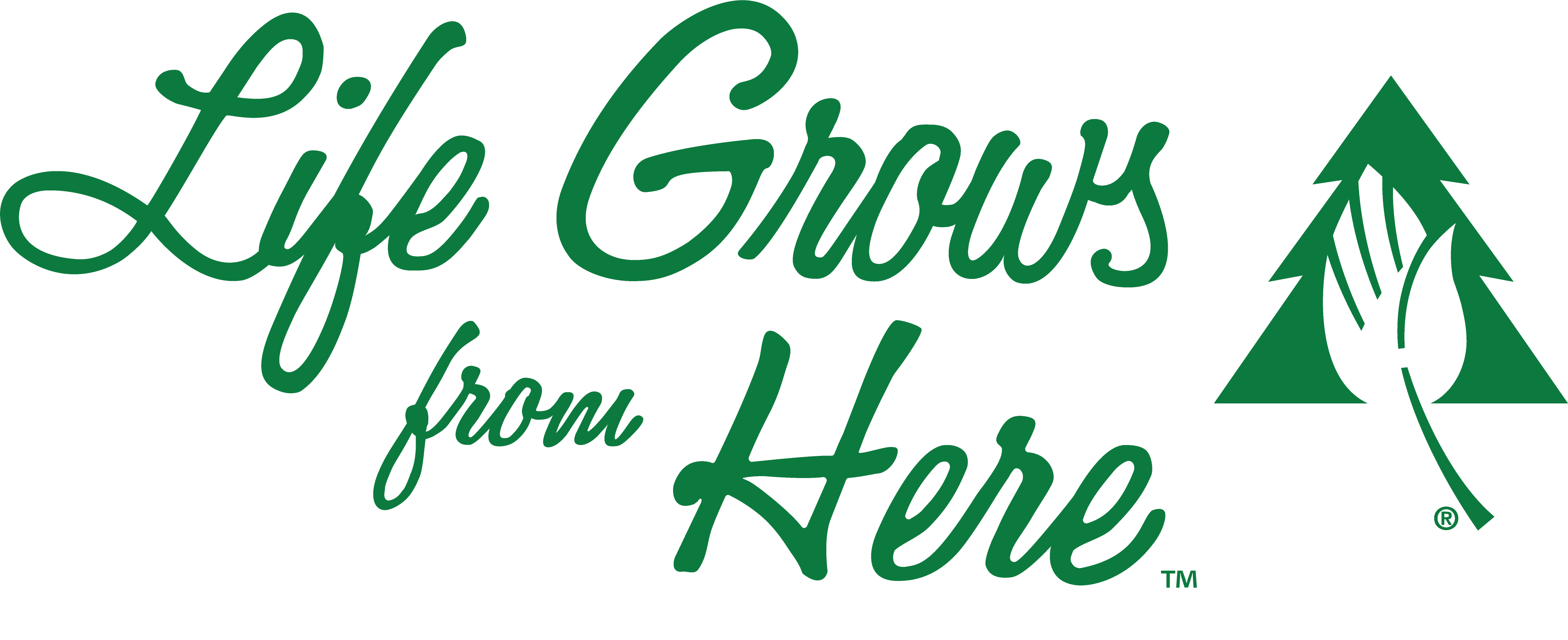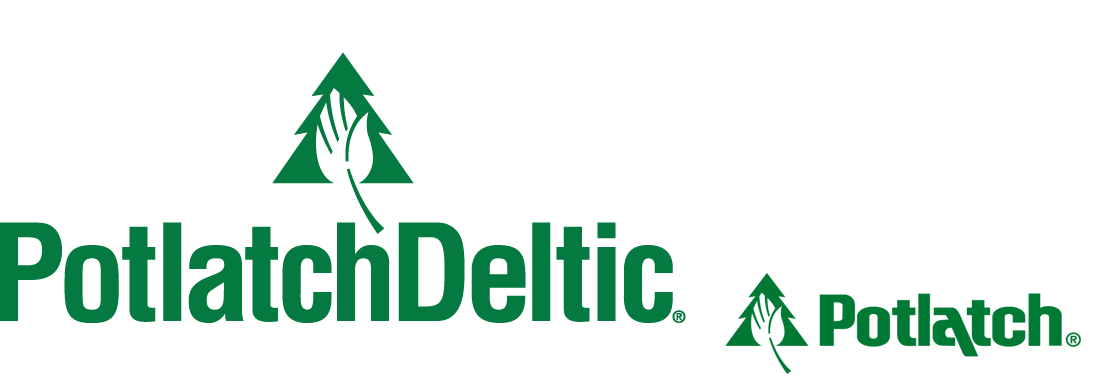
Stakeholder Engagement
Engaging with Stakeholders
We recognize the diverse interests of our stakeholders and believe that our relationships both within and outside of PotlatchDeltic are an important part of our value-creation and success.


STAKEHOLDER ENGAGEMENT
We regularly engage with a broad range of stakeholders including investors and analysts, Team Members, communities, customers, government representatives, Indigenous peoples, industry associations, non-governmental organizations, research organizations, and suppliers. This helps us to understand, prioritize, and manage our impacts as an organization and our opportunities towards systemic change. Meaningful stakeholder engagement is also a critical part of our corporate responsibility strategy, promoting increased knowledge and awareness of corporate responsibility issues, inviting feedback on insights and trends, and nurturing trust and collaboration.
Our engagement typically has three principal objectives: 1) to share information; 2) to promote meaningful dialogue; and 3) to build and maintain sustainable relationships. By providing information surrounding our strategies, accomplishments, and goals we allow internal and external stakeholders to make informed decisions. We properly and fairly disclose material information in compliance with law, and with the goal of maintaining transparency and accountability. We also seek meaningful dialogue with stakeholders, listening to their concerns and opinions, to continuously improve our business and our communications. Collaboration is a cornerstone of our values, and we view this as an essential component in finding solutions to the challenges we face both today and over the longer term. We believe that building sustainable relationships and considering valued perspectives results in better outcomes. We communicate with our stakeholders through direct conversations, meetings, workshops, or conferences, and through the public release of information.
We maintain regular engagement with our shareholders and analysts in one-on-one or group meetings, calls, conferences, and at the annual shareholder meeting. Shareholders and analysts participate in our Corporate Responsibility Materiality Assessment survey. We publish quarterly reports, Annual Reports on Form 10-K, Proxy Statements, and Corporate Responsibility Reports. We also respond to the Carbon Disclosure Project (CDP) forests questionnaire and update our corporate /investor relations website. Topics discussed with shareholders and analysts have included Company strategy, business fundamentals, capital allocation priorities, growth, corporate responsibility, and natural climate solutions. Feedback from the meetings was shared with the Board of Directors to keep them apprised of shareholder insights and trends. We see increased interest in our corporate responsibility approach and reporting from investors and analysts.
Transparency and engagement with our Team Members are integral to our culture. We engage with Team Members through day-to-day interactions, shift meetings, safety and other training sessions, meetings to review Company performance and progress on corporate initiatives, and through adherence to open-door policies. Town hall meetings and management visits provide opportunities for information sharing and for Team Members to ask questions. We also utilize external social media and an internal Team Member app to educate Team Members and share Company information on a timely basis. Topics discussed with Team Members include safety, health and wellness, benefits, inclusion, training and development, ethics and legal compliance, carbon and climate, and human rights.
Team Members have ready access to their human resources manager, can receive retirement counseling and personalized financial advisory services from outside advisers, and have the opportunity to participate in benefit fairs and webinars. Team Members regularly receive relevant training on safety, job-specific, and corporate governance topics. Team Members work with their managers and our human resources department to evaluate potential opportunities for professional development and training, to set personal goals, and to conduct annual performance evaluations. We educate Team Members about our corporate responsibility efforts and work to embed these efforts throughout the organization, including in our capital allocation decisions and as we evaluate issues related to carbon and climate. We conduct a Corporate Responsibility Materiality Assessment survey, which includes a broad range of Team Members among the recipients.






